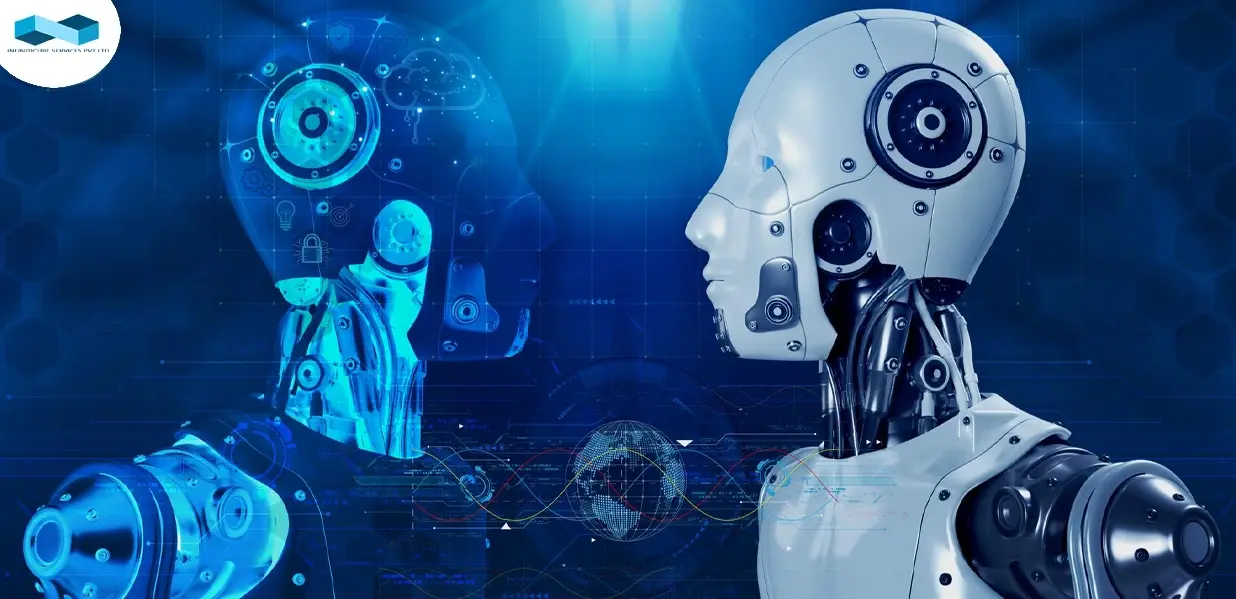15 DevOps Trends We Will See in 2025 – Stay Ahead of the Curve!
In recent years, DevOps has become widely recognized in the world of software development. According to a report by Harvard Business Review, a whopping 86% of organizations worldwide have seen how important it is to have a DevOps culture. And get this, 80% of businesses, whether they're big tech companies or large corporations, have started using DevOps practices!
The numbers are impressive, but get ready for more. Global Market Insights predict that the global DevOps market is going to explode from $8 billion in 2022 to a whopping $70 billion by 2032 growing at CAGR of 20%! That's a huge jump!
But wait, there's more! DevOps isn't stopping there. It's on the verge of even more changes. So, what DevOps trends we will see in 2025? Well, it's like looking into a crystal ball. We might see lots of new DevOps tools and trends shaping up. It's hard to say exactly what they'll be, but it's definitely something to keep an eye on!
DevOps as a Mindset
Back in 2007 and 2008, the two groups united and initiated discussions, spearheaded by individuals such as Patrick Debois, Gene Kim, and John Willis. This discussion sparked the idea of DevOps, a solution to bridge the gap between these two teams.
But DevOps isn't just about using fancy tools or following specific practices; it's a whole new mindset. It's about changing how teams collaborate and communicate throughout the entire software development process.
Before DevOps, developing software was quite different. But since its introduction, there's been a big change in how applications are made and delivered. DevOps aims to make the process smoother, faster, and more reliable.
So, don't forget, DevOps is more than just tools and techniques. It's about adopting a fresh way of thinking and working together to deliver top-notch software efficiently.
Also Read: 6 Key Elements of DevOps Mindset
Exciting DevOps Trends Ahead: What to Look for in 2025 and Beyond
Today, the technology sector is advancing rapidly with new developments emerging constantly. Even as you read these words, new innovations may have already taken form. DevOps methodologies have evolved continuously to keep pace with the latest technologies and trends. With the help of advanced technologies, DevOps teams are transforming the software development lifecycle. Let's explore the ongoing evolution and upcoming trends in DevOps for the year 2025.
1. DevSecOps: Security Integrated into the Pipeline
- DevSecOps incorporates security practices into every step of the software development pipeline to mitigate risks and reduce vulnerability exposure.
- It emphasizes the importance of integrating security as an essential component rather than an afterthought.
2. Greater Shift Toward Serverless Computing & Microservices Architectures
- Serverless computing platforms like AWS Lambda, Google Cloud Functions, and Azure Functions offer scalability, flexibility, and cost-effectiveness.
- Microservices architecture enables the development, deployment, and management of independent smaller services, streamlining processes and expediting development cycles.
Also Read: Monolithic vs Microservices: Which Architecture is Right for Your Business?
3. Automation Capabilities Driven by AI and ML
- AIOps and MLOps analyze data generated by various DevOps tools for faster root cause analysis, anomaly detection, predictive maintenance, and performance optimization.
- Automation powered by AI and machine learning enhances software development efficiency and reduces errors caused by manual intervention.
4. Emergence of NoOps
- NoOps aims to boost operational efficiency to the extent that a dedicated ops team becomes unnecessary, allowing developers to focus solely on coding and innovation.
- It requires a significant shift in organizational culture and high levels of automation but could become a viable option with advancements in AI and automation technologies.
5. DevOps as a Service (DaaS)
- DaaS involves outsourcing DevOps processes to third-party service providers, relieving businesses of DevOps operational burdens.
- It provides access to experienced DevOps professionals, advanced automation tools, and ensures a faster return on investment.
6. GitOps – The New Norm
- GitOps utilizes Git version control for managing all code changes, including infrastructure configuration changes, in a Git repository, automating infrastructure control.
- It streamlines infrastructure automation and control, facilitating continuous delivery pipelines.
7. Adoption of Kubernetes and Containerization
- Kubernetes offers automation for deployment, scaling, and managing containerized applications, improving scalability and resource utilization.
- Containerization enables consistent deployment across different environments, making it easier to manage complex applications and services.
8. ChatOps
- ChatOps integrates popular chat platforms into the DevOps workflow using chatbots, streamlining communication among team members and providing real-time monitoring and notifications.
- It reduces the need for switching between different tools and interfaces, enhancing collaboration and efficiency.
9. Low-code/No-code Automation
- Low-code/no-code automation solutions enable businesses to build and deploy applications with minimal code and programming knowledge, facilitating faster and more efficient development.
- Integrating these platforms with DevOps processes or toolchains eases automation and boosts productivity in the software delivery pipeline.
10. Multicloud Infrastructure
- Businesses leverage multiple cloud service providers to cater to diverse operational requirements, avoiding vendor lock-in and maximizing efficiency.
- Multicloud infrastructure optimization enables organizations to harness the unique capabilities and advantages offered by different cloud platforms, enhancing innovation and efficiency.
11. Continuous Compliance
- Continuous Compliance ensures that software development and deployment processes comply with regulatory requirements and industry standards.
- Automation tools and practices are employed to continuously monitor, audit, and enforce compliance, reducing the risk of non-compliance and associated penalties.
12. Immutable Infrastructure
- Immutable Infrastructure treats infrastructure as code, ensuring that infrastructure components are never modified after deployment.
- Changes are made by deploying new instances rather than modifying existing ones, reducing configuration drift and enhancing consistency and reliability.
13. Edge Computing Integration
- Edge computing brings computation and data storage closer to the location where it is needed, reducing latency and bandwidth usage.
- Integrating edge computing into DevOps practices enables more efficient and responsive applications, particularly in scenarios where real-time processing is crucial.
14. Blue-Green Deployment
- Blue-green deployment is a deployment strategy used in software development and release management, designed to minimize downtime and risks associated with deploying new versions of an application.
- It facilitates a seamless transition from the old version of the application to the new one. Once the new version is deployed and thoroughly tested in the green environment, the traffic is switched from the blue environment to the green environment with minimal or no downtime.
15. Collaboration of Big Data and DevOps
- The collaboration of Big Data and DevOps leverages data analytics to optimize software development processes, enabling better decision-making and performance improvement.
- By integrating Big Data techniques with DevOps practices, organizations can gain insights into software performance, user behavior, and system health, leading to enhanced efficiency and reliability.
The Prospective Outlook for DevOps Trends in Software Development
As we look ahead to 2025, the landscape of trends in DevOps is poised for exciting transformations and innovations. From the integration of security practices into every stage of the development pipeline with DevSecOps, to the emergence of serverless computing and microservices architectures for enhanced scalability and flexibility, the future of DevOps is bright.
Moreover, the adoption of automation driven by artificial intelligence and machine learning promises to revolutionize software development processes, while trends like GitOps and NoOps pave the way for more efficient infrastructure management and operations.
As we anticipate these devops trends and more, one thing remains clear: the world of DevOps is ever-evolving, with new technologies and methodologies continuously shaping its trajectory. So, whether you're a business looking to stay ahead of the curve or a developer seeking to streamline your workflow, now is the time to embrace these trends and harness their potential.
At Infiniticube, we are committed to helping you navigate this evolving landscape and leverage the latest DevOps trends to drive innovation and success. Contact us today to learn more about how our DevOps services can propel your software development efforts forward. Let's build the future together. You can also schedule a call with our expert to discuss your software requirement.
 June 27, 2025
June 27, 2025
 Balbir Kumar Singh
Balbir Kumar Singh
 0
0
 June 13, 2025
June 13, 2025
 Balbir Kumar Singh
Balbir Kumar Singh
 0
0









Leave a Reply